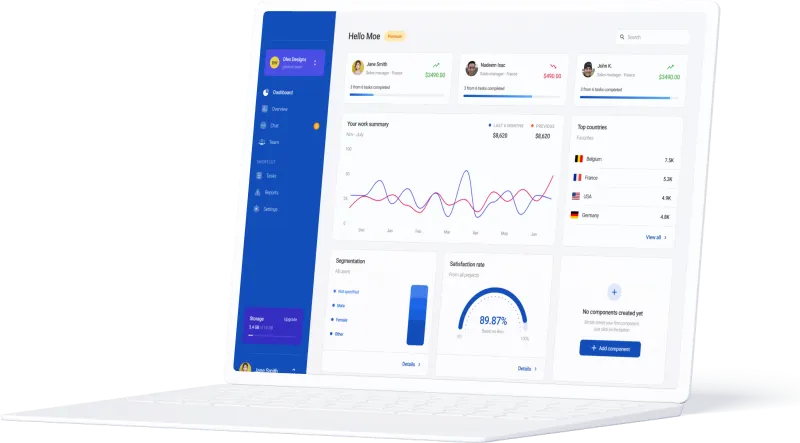Best Off-Page SEO Techniques To Boost Your Traffic-SEO Assistance
Learn About Off Page SEO

%201.webp)

16 Off-Page SEO Techniques You Should Be Doing:
Off-Page SEO techniques are important for any website looking to increase their search engine visibility and drive more traffic.
In this blog post, we’ll take a look at 15 off-page seo techniques that can help you achieve your marketing goals.
1.Link Building is King:
Link building is still one of the most powerful ways to drive traffic and increase rankings.
But with Google’s Penguin update link building became a lot more difficult.
And now requires a lot more thought and effort.
The first thing you need to do when thinking about off-page optimization is to gain links from high quality sites. This means you need to become an expert of your industry and write informative, engaging content that’s worth linking to.
Here are some guidelines for building better links:

- Content – Search engines such as Google value original content written (not copied) with a link back to your site.
- Quality over Quantity – Don’t go out and build links just for the sake of it. Focus on getting links from high quality websites that are relevant to your industry.
- Diversity – Don’t put all your eggs in one basket. Diversify your link building efforts by targeting a variety of different types of links. Like editorial links, social media links, and even links from other websites.
2. Increase Domain Authority – Off-page SEO techniques:
Domain Authority (DA) is a metric created by Moz that measures the strength of a website’s domain name. And how likely it is to rank high in search engine results.
The DA is measured on a scale between 0 to 100, with the higher the number being better. DA shows how well a website will rank, while also showing how hard it’s going to be for that website to get links and social shares .
3. Create valuable content.
One of the most important things you can do to improve your search engine ranking is to create valuable content. This will provide immense value or meet the intention of people who are searching for it.
This needs to go beyond just writing an article on what you’re selling. But really understanding when and where people look for your products when they’re in buying mode .Then use this information to produce articles, guides, infographics or videos that solve their problems.
The important thing here is to make sure that everything you publish has value and is not seen as spam by the search engines.
Search Engine and Off-Page:
Search engines like Google take into account how long users stay on a given page (this is called “time on site”). Whether they return frequently (what’s known as “bounce rate”) and how many other sites link to it (this is “PageRank” or “Domain Authority”). If you want to increase your rankings, make sure you are consistently creating valuable content rather than publishing promotional material.
4. Build an email list:
Building an email list of targeted subscribers is one of the best ways to capitalize on existing traffic and keep them coming back for more. This type of approach should form part of a larger off-page strategy that includes social media engagement, blogging and guest posting.

You can do this through pop-ups, sidebar widgets or slide in forms that ask users to subscribe when they visit specific pages on your site – though there are some general rules around asking people to sign up too early in the process so think carefully about where you place these.
5. Get featured on industry sites:
There are a number of high-quality websites that have been built up by people in your industry. If you can get some exposure on those you’ll benefit from increased traffic as well as added credibility for your brand or business.

If you can become a valuable contributor to these sites over time, so much the better but classic guest posting is a really powerful way to achieve this goal – just be sure to follow submission guidelines, introduce yourself briefly and link back to your site with every article.
6. Increase inbound links to your site:
The number of inbound links back to your website is an important factor when it comes to search engine rankings. If nobody’s talking about you, then you’re unlikely to rank for anything. So engage with other bloggers who are writing relevant content and ask them if they’d link to something that helps their readers out.
You can also do this same thing by offering guest posts on sites that are relevant to what you do, or using PR distribution services like HARO which help connect journalists with sources for articles, interviews etc. If nothing else, try finding influential people on Twitter who have a large audience and tweet out some of your new content – this kind of social endorsement goes a long way.
7. Promote your brand on social media networks.
Social media is now almost universally used by people looking to find new brands or products, so if you can get a following here you’ll definitely reap the benefits of increased visibility and traffic.
Facebook,LinkedIn,Twitter,Google+,Pinterest:

The first thing to do here is make sure you have accounts on all the major social networks where people in your industry tend to congregate, which will typically include Facebook, Twitter, Google+. You should then try promoting your content through these channels by often sharing it to your personal timeline as well as via paid advertisement campaigns.
Just remember that quality is much more important than quantity when it comes to this kind of thing. Don’t post too many times per day but don’t be afraid to share great content multiple times.
8. Take advantage of HARO and other similar services.
As we’ve just mentioned, HARO is a fantastic way to get yourself in front of journalists who are looking for sources for their stories, and if you can score a few hits here you’ll see a nice bump in traffic as a result. You can also use other similar services like Source Bottle, ProfNet or ResponseSource which work in more or less the same way.
9. Syndicate your content on relevant sites.
If you have some great content that’s performing well on your own website, there’s no reason not to share it with other publishers who may be interested in publishing it on their own platforms. After all, it’s a free promotion for you and it gives their readers a chance to see something useful.
If the site is reputable and trusted by its audience, this can really pay off as people may click through on your link. Plus, your content doesn’t have to be exclusive which means you can use it on multiple platforms if desired.
10. Make sure your website loads quickly.
If you want people to come back to your site then giving them a positive and memorable experience when they first arrive is crucial and one of the biggest factors here is how long it takes for your pages to load up in their browser.
It should take no longer than three seconds, otherwise you’ll risk losing visitors who are probably pining for another result that showed up more quickly. To help with this, you can use tools like GTMetrix or Pingdom to check the load speed of your site.
11. Offer valuable resources.
One of the best ways to get people talking about your website is to offer them something valuable that they can’t find elsewhere. This might be an ebook or report, a helpful template, some code snippets and examples (for developers), exclusive industry-related data – it can be anything you like.
This is effectively the equivalent of giving people gifts, which they’ll then be more likely to talk about with their friends – just remember that it needs to be genuinely valuable, so don’t load it up with fluff!
12. Forum Submission:
Forum submission is an off page seo technique to increase your site’s link popularity and domain authority. Search engines, including Google and Yahoo! increasingly rely on link popularity as one of the key factors in ranking search engine results pages (SERPs).
The more links that exist to your site from other websites, the more authoritative these links will help to boost your website.
13. Question and Answer:

Question and Answer (Q&A) websites are a fantastic place to share your knowledge and expertise with the world.
This is also a trick to build up some authority for your own site. As readers will often stay on the page you’ve contributed to if they find it useful.
14. Video Submission:
Video submission is a bestt way to get your site in front of more people. As well as to help build up some links and authority. You might like to submit your videos to sites like YouTube or Vimeo as well as other similar video-sharing sites. The more views and backlinks you can get, the better.
15. Social bookmarking:
Social bookmarking is a great way to get your site in front of new people. You can also to get more backlinks. Both of which can help you rank higher in search engine results. Sites like Delicious, Digg, StumbleUpon, Reddit and even Facebook are great places to share your content.
16. Directory Submission-Well known off-page seo techniques:
There are various different types of directories you can submit your site to, but some of the best ones include:
- Local Business.
- Niche Industry.
- PR Web.
- Authority Web.
Conclusion:
Put these techniques to work for you and watch your traffic grow! It can take several weeks to build up enough links for search engines to recognise the increase in authority.
But once this has occurred, as you’ll be driving more organic traffic through search engine results pages.

Want to hire us to do your SEO for you?
Simply fill out your information below. We'll audit your SEO live on video and send it to you free of charge. Simple as that.


